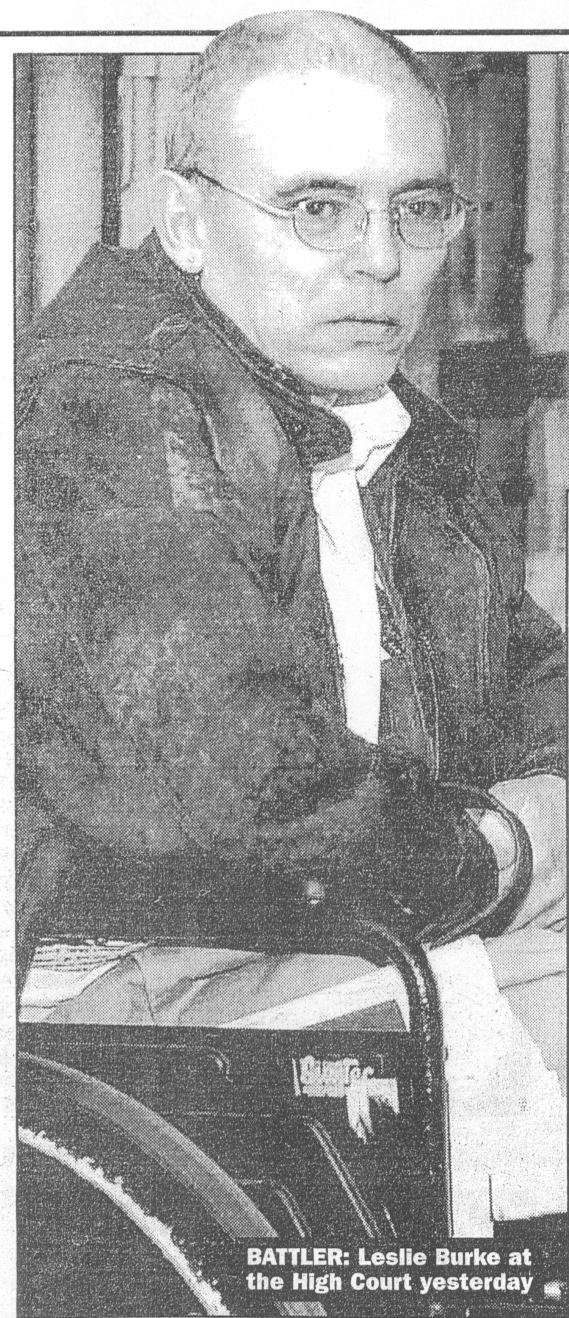
Don't let the Docs
kill me
A FORMER postman with a terminal illness went to court yesterday to fight far the right to life.
Wheelchair-bound Leslie Burke challenged the legality, of "confused" official guidelines that permit doctors, to stop artificial feeding and allow patients to die.
Mr Burke, 44, has the degenerative brain condition cerebellar ataxia and he fears that medics could eventually decide his quality of life is so poor he should not. be kept alive.
Lawyer Richard Gordon, QC, told the High Court that Mr Burke was seeking a judicial review of the General Medical Council's 2002 guidelines.
Mr Gordon said that while Mr Burke could choose to die, the guidelines did not allow him to choose to live. His health has degenerated severely since he was first diagnosed with the condition 12 years ago.
Patient challenges law that
lets life support be cut off
lets life support be cut off
He has lost the use of his legs and his speech is affected,
although his mental capacity is unimpaired. But Mr Gordon said
that as the condition worsens, Mr Burke's swallowing will be
affected and he will be dependent on feeding by tube. If this
happens, doc
torsare allowed to stop artificial feeding under the GMC guidelines.
Mr Gordon said: "Withdrawing the provision of food and water by artificial means would. lead to the pain and extreme. distress that would follow from malnutrition and dehydration.
"If the provision of foods and fluids is withheld, Mr
Burke will die after two to three weeks of dehydration. He does
not want to die: of thirst. He does not want to starve. He would
want to be provided with water and food until he dies of natural
causes."
Mr Burke claims he is entitled to the right to life
under Article 2 of the European Convention on Human Rights
and should not suffer degrading or inhuman treatment which is
a breach of Article 3
of the Convention.
Patients or their deputies can refuse or consent to life-ending
treatment, but not insist' on life
prolonging treatment, which includes artificial feeding.
Mr Burke lives in Lancaster with his older brother Robert,
who also suffers from cerebellar ataxia. He said before the case
"What I am frightened of most is that there will come a
time when I have lost the capacity to communicate, but am aware
that the hospital has decided to stop feeding me.
"I will be lying there in great distress but unable to tell
anyone that I want to live. It's not a civilised way to die.
When it comes to the end of life, you should be allowed dignity."
The hearing continues.